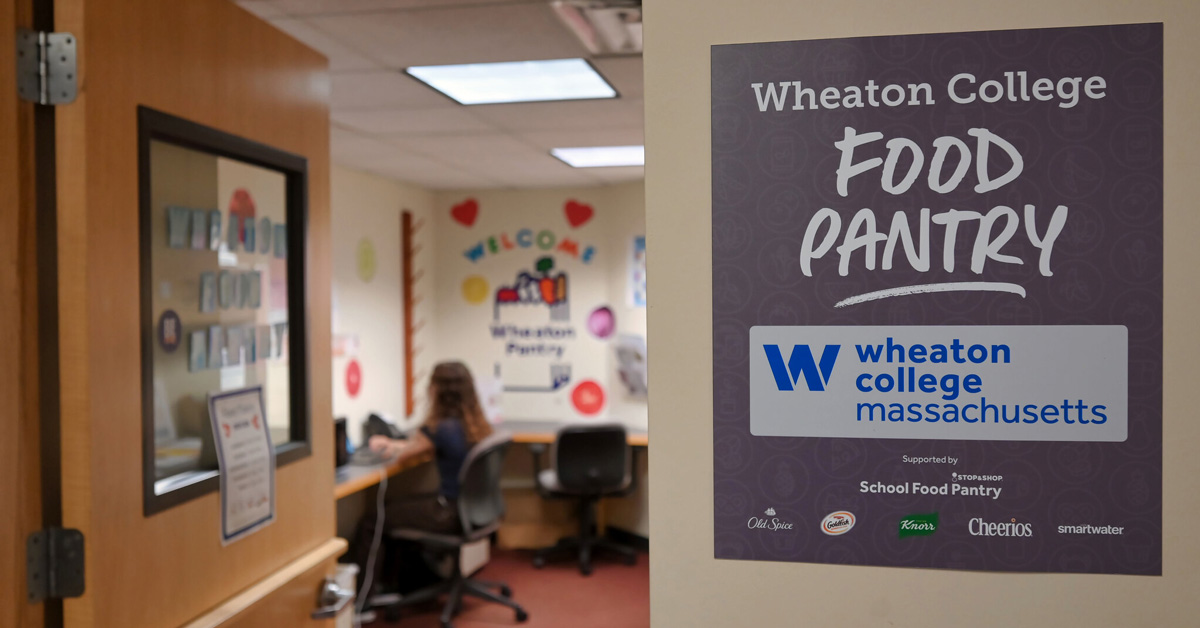Sun Chronicle notes Wheaton’s efforts to address food insecurity

Pantry, meal-sharing program, campus partnerships raise awareness and support students
Food insecurity on college campuses has been described as an invisible epidemic that can be a barrier to success in learning environments. Wheaton College has been addressing the challenge through several initiatives, including a food pantry that is available to all students.
The front page news story “Local colleges stepping up to address hunger in college students,” published November 18 in The Sun Chronicle (Attleboro, Mass.), noted the work being done at Wheaton and on other campuses.
Leonard Breton, director of the Center for Social Justice and Community Impact (CSJCI), is quoted in the story. He shared the background on the pantry and other initiatives that are underway in partnership with the Dean of Students Office and Dining Services. In addition to the food pantry, Wheaton also participates in Swipe Out Hunger, a meal-sharing program in which students can donate meal swipes for dining on campus.
“We partner with student groups such as Hungry Lyons to increase community awareness of food insecurity on campus and beyond our campus,” Breton said. “At the end of each semester, we have begun to host donation drives to support not only our pantry, but also a local pantry in Norton.”
The Wheaton pantry is located in Wallace library and receives philanthropic support from The Marjorie Judith McNamara Bland ’62 Emergency Discretionary Endowed Fund. It is staffed by interns Abbie Cramer ’26, a film and new media studies major, and Daniela Peña ’26, a neuroscience major.
The two students, who help keep the pantry fully stocked with food, toiletries and personal hygiene products, shared their experiences in a recent “Through the Student Lens” blog post.
“Through our work, we support students who struggle to have access to good, healthy and culturally appropriate food through advocacy and awareness. The pantry was established to alleviate stress for students with food and hygiene insecurity and bring education about these insecurities to the Wheaton campus,” Cramer said.
Both said they focus on making the space inclusive and accessible.
